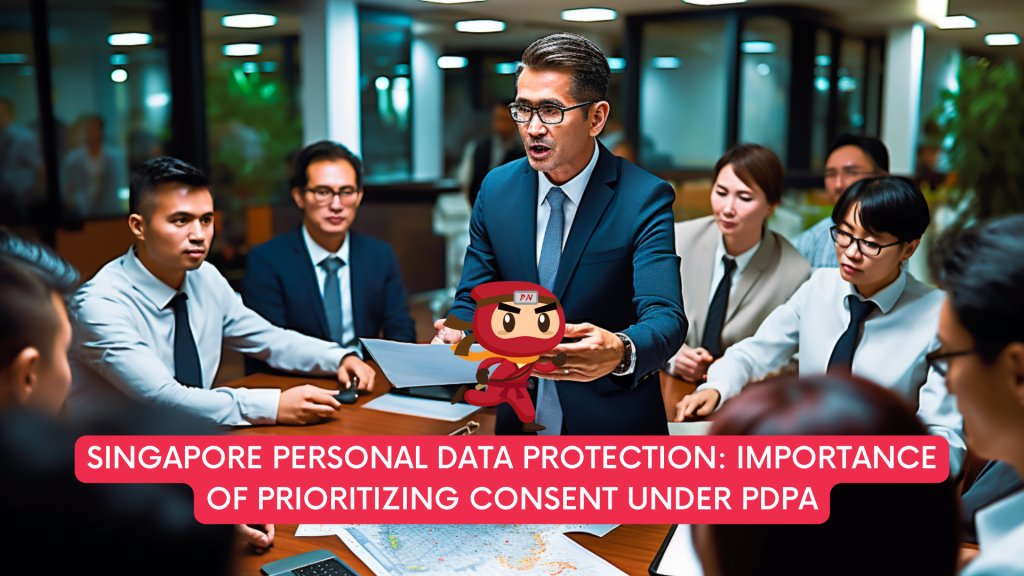
Ensuring the protection of individuals’ privacy has emerged as a top priority for organisations on a global scale, underlining the significance of safeguarding personal data. In Singapore, this commitment is enshrined in the Personal Data Protection Act (PDPA), which imposes rigorous protocols to uphold the sanctity of personal information. Central to this framework is the foundational principle of explicit consent, serving as a linchpin in the handling and processing of personal data.
The PDPA’s emphasis on explicit consent underscores the importance of individuals’ autonomy over their personal information, empowering them to make informed decisions about its use. This requirement mandates organizations to obtain clear and unambiguous consent from individuals before collecting, using, or disclosing their personal data, fostering transparency and accountability in data practices.
Moreover, the PDPA’s stringent measures extend beyond consent, encompassing comprehensive guidelines for data protection, including the obligation to ensure the accuracy and security of personal data. By adhering to these measures, organizations not only fulfill legal obligations but also cultivate trust and confidence among consumers, bolstering their reputation and competitiveness in the marketplace.
In essence, the PDPA serves as a crucial framework that not only regulates the handling of personal data but also upholds the fundamental right to privacy, aligning Singapore with global standards in data protection and fostering a culture of responsible data stewardship.
Under the PDPA, organisations are legally obligated to obtain explicit consent when handling personal data. Failure to comply can result in significant financial penalties, highlighting the seriousness of this requirement.
Obtaining explicit consent empowers individuals to exercise control over their personal data. It demonstrates respect for privacy rights and fosters trust between organisations and their customers.
Prioritizing consent promotes accountability within organisations and encourages the adoption of robust data protection policies. It ensures transparency in data practices and mitigates the risk of regulatory sanctions.
Organisations should adopt clear and accessible communication channels to inform individuals about their data practices. This includes providing concise privacy notices that outline the purposes of data collection and how it will be used.
Allowing individuals to exercise meaningful choice and control over their data is essential. This includes providing opt-in mechanisms for marketing communications and allowing data subjects to withdraw consent at any time.
Consent obtained must be properly documented and stored to demonstrate compliance with the PDPA. This includes maintaining records of consent transactions, including the date, time, method, and scope of consent obtained.
In addition to obtaining explicit consent, organisations must uphold other key principles of the PDPA, such as ensuring data accuracy, limiting data retention, and disclosing data breaches in a timely manner.
Prioritising the importance of obtaining explicit consent is imperative for every organisation in Singapore. Compliance with the PDPA’s consent requirements not only fulfills legal obligations but also fosters trust, accountability, and transparency in data management practices. By embracing a privacy-first mindset and implementing robust consent mechanisms, organisations can navigate the complex landscape of personal data protection with confidence and integrity.
Your appointed DPO can work with you on your PDPA compliance, ensuring that there will be policies in place to make sure that the handling of personal data is PDPA compliant.
A Data Protection Officer (DPO) oversees data protection responsibilities and ensures that organisations comply with the Personal Data Protection Act (PDPA). Furthermore, every Organisation’s DPO should be able to curb any instances of PDPA noncompliance as it is the officer responsible for maintaining the positive posture of an organisation’s cybersecurity.
DPOs complement organisations’ efforts to ensure that the organisation’s methods of collecting personal data comply with the PDPA. It also ensures that policies are set in place to make sure that there will be no instances of data breaches in the future.
Don’t wait any longer to ensure your organisation is PDPA compliant. Take our free 3-minute PDPA Compliance Self-audit checklist now, the same “secret weapon” used by our clients to keep them on track. Upon completion, we will send you the results so you can take the necessary action to protect your customers’ data. Complete the free assessment checklist today and take the first step towards protecting your customers’ personal data.
Role of Enhanced Access Controls in Safeguarding Personal Data in Telecommunications that every Organisation in…
Effective Incident Response Procedures in Strengthening Data Security that every Organisation in Singapore should know…
Crucial Role of Regular Vulnerability Scanning that every Organisation in Singapore should know. Strengthening Your…
Enhancing Data Security with Multi-Factor Authentication that every Organisation in Singapore should know. Enhancing Data…
Strong Password Policy as a first line of defense against data breaches for Organisations in…
Importance of Efficient Access Controls that every Organisation in Singapore should take note of. Enhancing…
This website uses cookies.